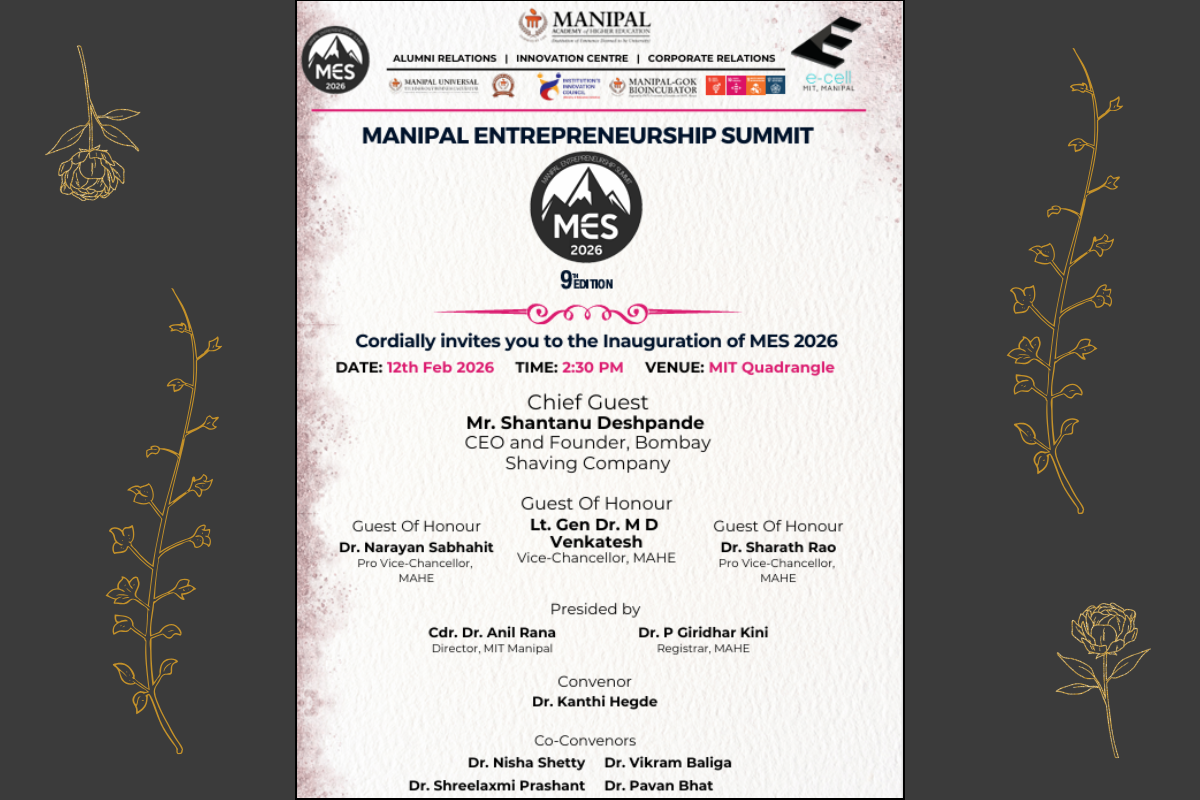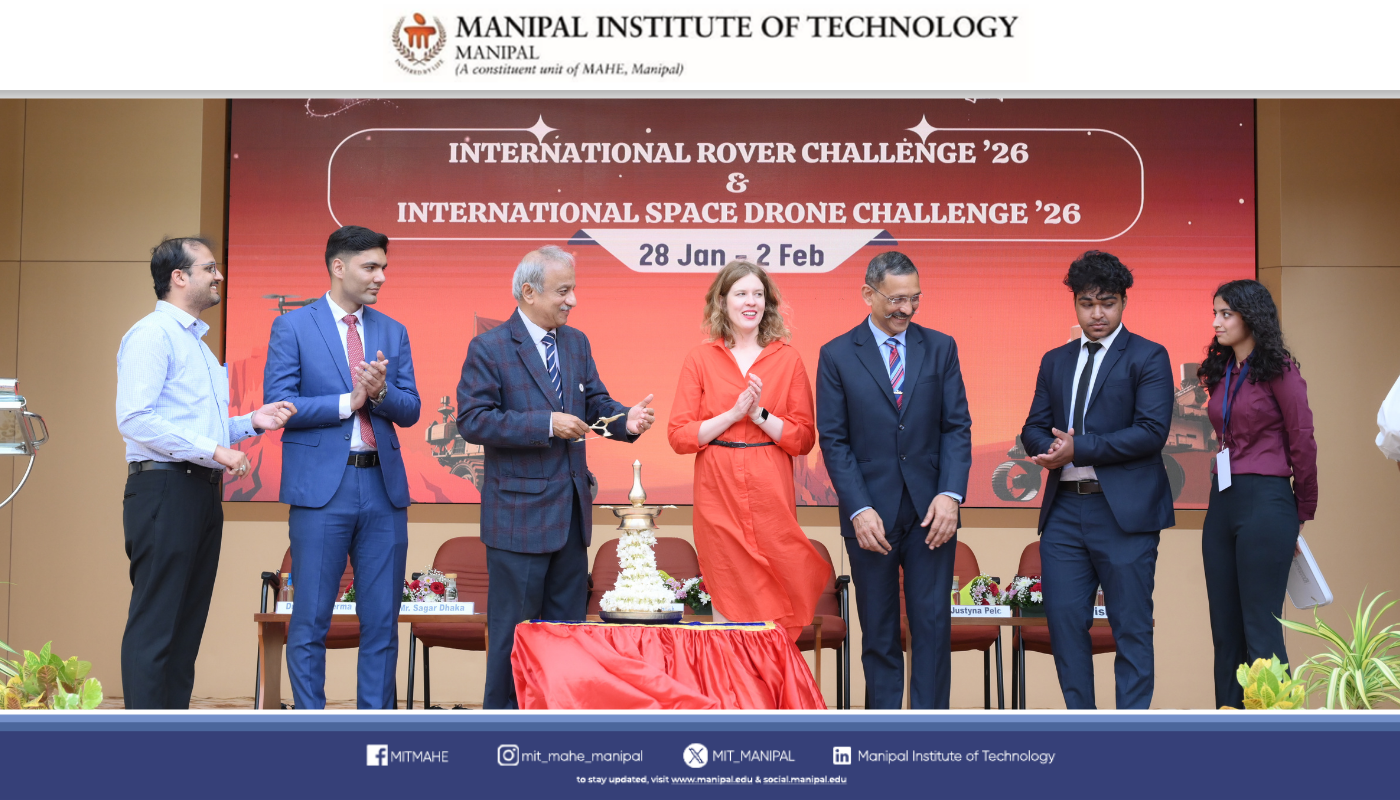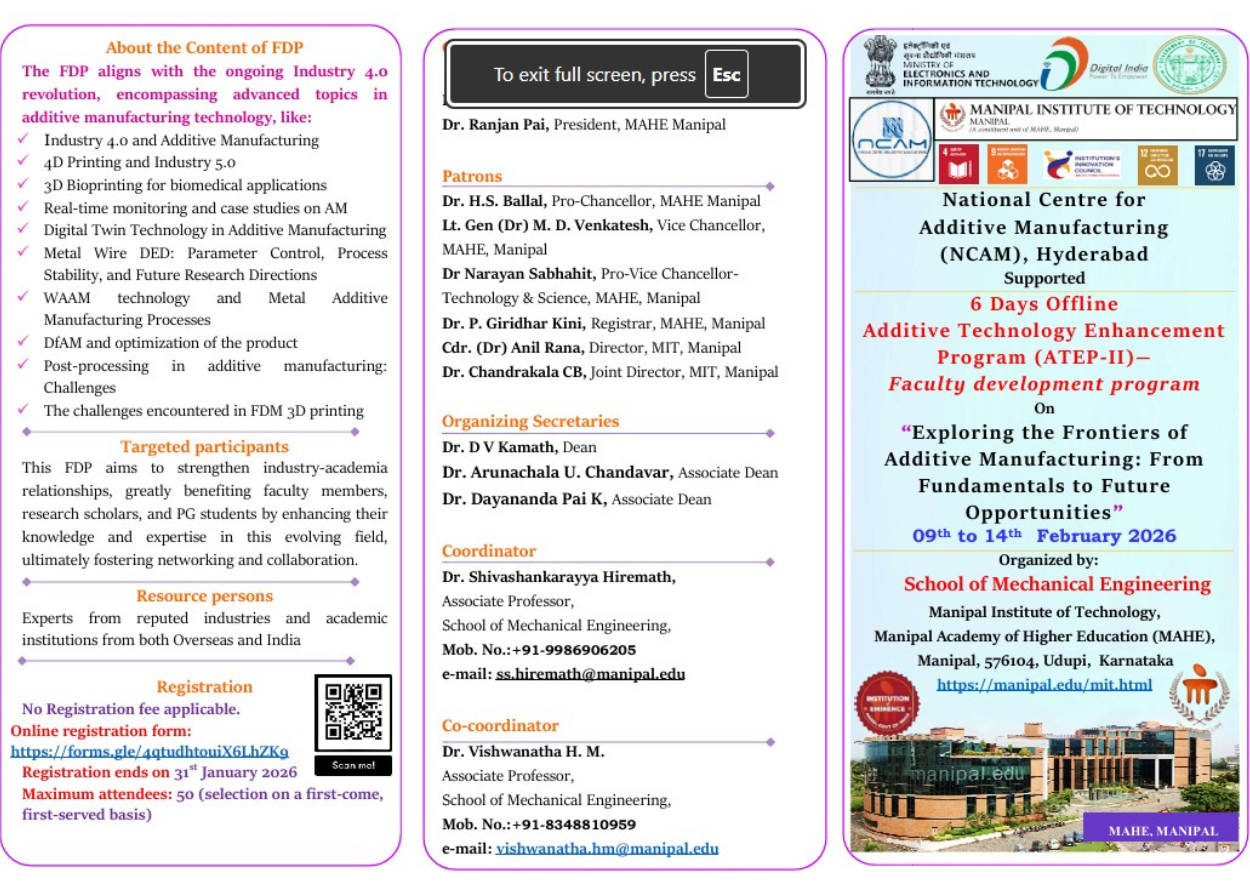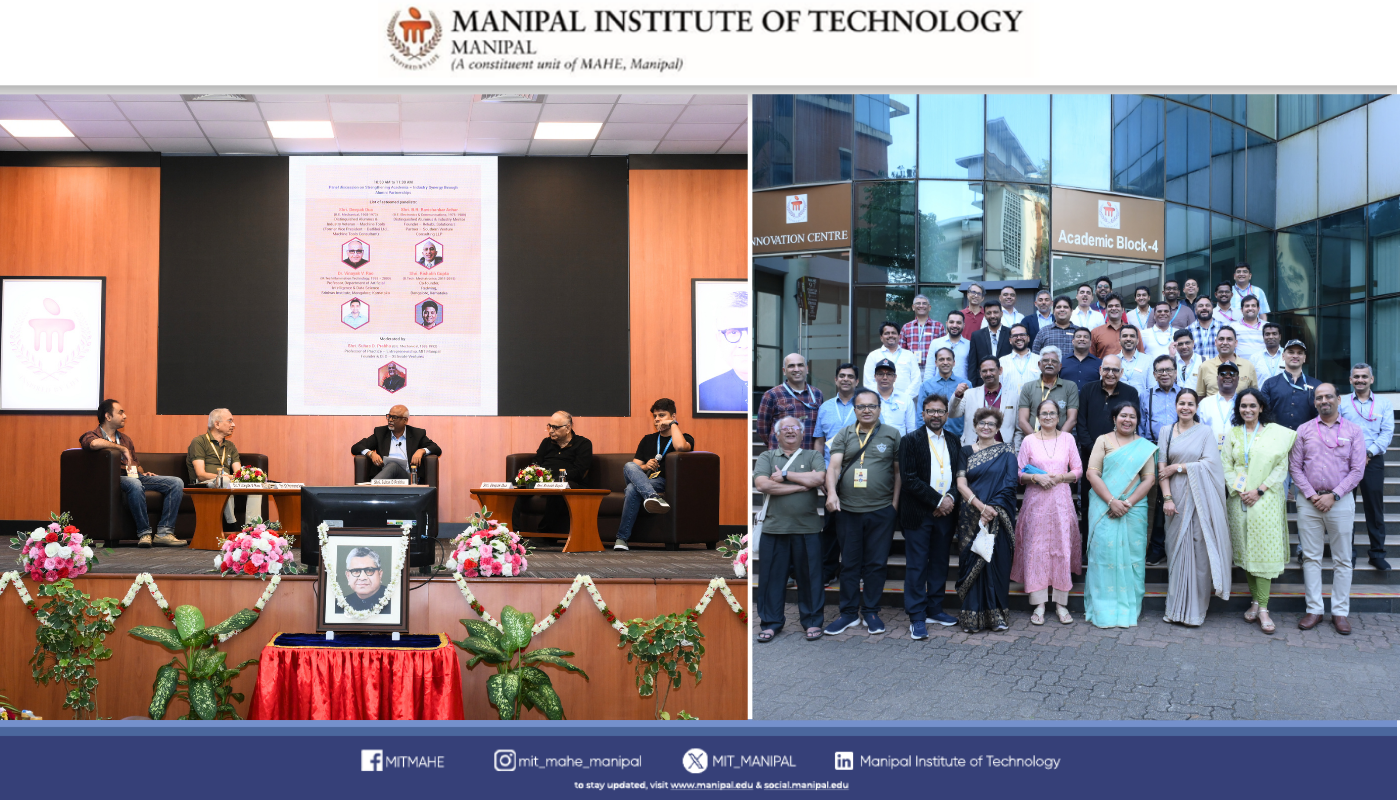KAVACH 2023-The Internal hackathon of MIT
April 03, 2023
The KAVACH-2023 nationwide hackathon is co-organized by the MoE's Innovation Cell, AICTE, the Bureau of Police Research and Development (BPR&D, MHA), and the Indian Cyber Crime Coordination Centre. (I4C, MHA). KAVACH-2023 is an exceptional chance for higher education students and startups in India to contribute their creative concepts and ideas to address the challenges of cyber security.
To nominate the top ten teams to participate in the final KAVACH 2023, on April 1st, 2023, Manipal Institute of Technology in collaboration with the MAHE-ISAC Center of Excellence for Cyber Security conducted a 12-hour internal hackathon.
The event hosted 22 student teams of Manipal Institute of Technology having six members, involving atleast one female member. The hackathon was inaugurated by Commander(Dr) Anil Rana, Director Manipal Institute of Technology, Manipal, along with Dr. Mohammad Zuber, Chief Innovation Officer, Innovation Centre, MAHE, Dr. Smitha N Pai HoD, Department of Information and Communication Technology, Dr. Balachandra, Professor, Department of Information and Communication Technology, Coordinator - MAHE-ISAC Center of Excellence-Cyber Security, Dr. Sucheta Kolekar Associate Professor, Department of Information and Communication Technology and coordinator of the event and Dr. Sumith N, Associate Professor, Department of Information and Communication Technology and SPOC-MIT (KAVACH 2023).
The students showed enthusiasm and designed creative solutions for various problem statements of KAVACH 2023. The competition sought creative ideas and technological solutions to address cyber security and cybercrime challenges confronting law enforcement agencies and ordinary citizens.
The internal hackathon was held in a competitive environment, with each team working on creative solutions. The teams were required to present their ideas and solutions to a jury panel in two rounds. The judging panel was split into seven groups. Each panel comprising of one internal and one external jury assessed three to four teams.
The final round was a Power Judging evaluated the top 15 teams by panel 8.
The suggested solutions' innovation and creativity, objectives of the work, feasibility and relevance for real-world issues, presentation skills, and commercial viability were among the judging factors. During their assessments, the judges placed a strong emphasis on security aspects incorporated in the solutions. There were three stages of judging. The judges evaluated the work's goals, scope, and innovation in the first round, which took place around 11 a.m. A few recommendations were also made by the judges for each initiative.
The completion of the work was assessed in the second round of the project at 4 p.m., based on the judging criteria stated above. The best 15 scorers from rounds 1 and 2 were chosen for the final round power judging round, after which the top 10 teams were chosen.
After evaluation, the following 10 teams were selected to participate in the final KAVACH competition, following which a token of mementos for all the judges was presented by Dr. Mamatha Balachandra, Professor, Dept. of CSE, MIT, Manipal
The valedictory function of the event were chaired by Dr. Somashekara Bhat, Joint Director of Manipal Institute of Technology, Manipal.
Students were incredibly enthusiastic throughout the 12-hour competition, and the event was a huge success. All the 10 chosen teams' work demonstrated technical proficiency and creative abilities with cutting-edge technologies such as Artificial Intelligence/Machine Learning, Deep Learning, Data Analytics, etc. to find reliable, secure, and efficient technological solutions for cyber security issues faced in the current 21st century.





